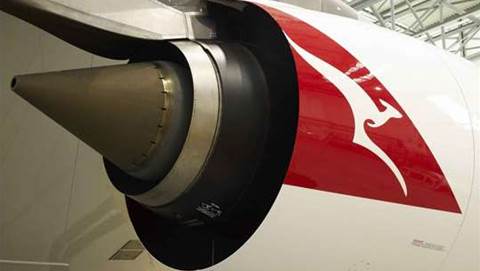The Department of Immigration has added computer network and systems engineers to the list of occupations open to general skilled migration into Australia.

The IT function is one of four changes in the 2012 revision of the skilled occupation list (pdf), which comes into effect from July 1.
The list identifies 192 occupations where medium or long-term skills shortages are expected that can't be met by "employing, training, skilling and re-skilling Australians".
Skills Australia – which performs annual revisions of the list – said computer network and systems engineers were listed because supply "is not keeping pace with demand" for skilled workers.
It pointed to the decline in "domestic completions" – essentially graduates – in computer engineering, and the requirement by Government for these types of IT workers for large-scale projects, such as the NBN and e-health (pdf).
The government agency said around 25,900 people are currently employed in computer networking in Australia, but that figure is expected to jump 17.1 percent over the next five years.
The Association of Professional Engineers, Scientists and Managers Australia's (APESMA) executive officer of the managers and professionals division, Dr Kim Rickard, said the association "did not oppose" the change in status for computer network engineers.
"APESMA's key concern is to ensure that the [list] contains only those occupations where there are likely to be genuine skill shortages in the medium to longer-term that could not be met through a proper effort to employ and train the Australian workforce," Rickard told iTnews.
"On the understanding that the listing of IT occupations on the ... list is subject to a responsive, consultative and market-driven process, APESMA did not oppose the inclusion of Computer Network and System Engineers at this time."
The IT changes were less than some industry voices had hoped.
Brisbane City Council listed 21 ICT roles – from CIOs to project managers, to network and security specialists – that should be opened to general skilled migration (pdf). it said the roles were important to the "rapid expansion of the digital economy".
NBN Co also submitted formally to the list revision, seeking telecommunications lines workers and cablers (pdf) for rollout of the fibre, wireless and satellite network.
In total, consultation by Skills Australia over the past year netted some 144 industry submissions.
There are a number of other IT roles that have maintained their spot on the list from last year.
These include ICT business analyst, systems analyst, developer programmer, software engineer, and telecommunications engineers, field engineers, network planners and technical officers.


_(28).jpg&h=140&w=231&c=1&s=0)
_(33).jpg&h=140&w=231&c=1&s=0)
.png&h=140&w=231&c=1&s=0)






 iTnews Executive Retreat - Security Leaders Edition
iTnews Executive Retreat - Security Leaders Edition
 iTnews Cloud Covered Breakfast Summit
iTnews Cloud Covered Breakfast Summit
 The 2026 iAwards
The 2026 iAwards












_(1).jpg&h=140&w=231&c=1&s=0)



